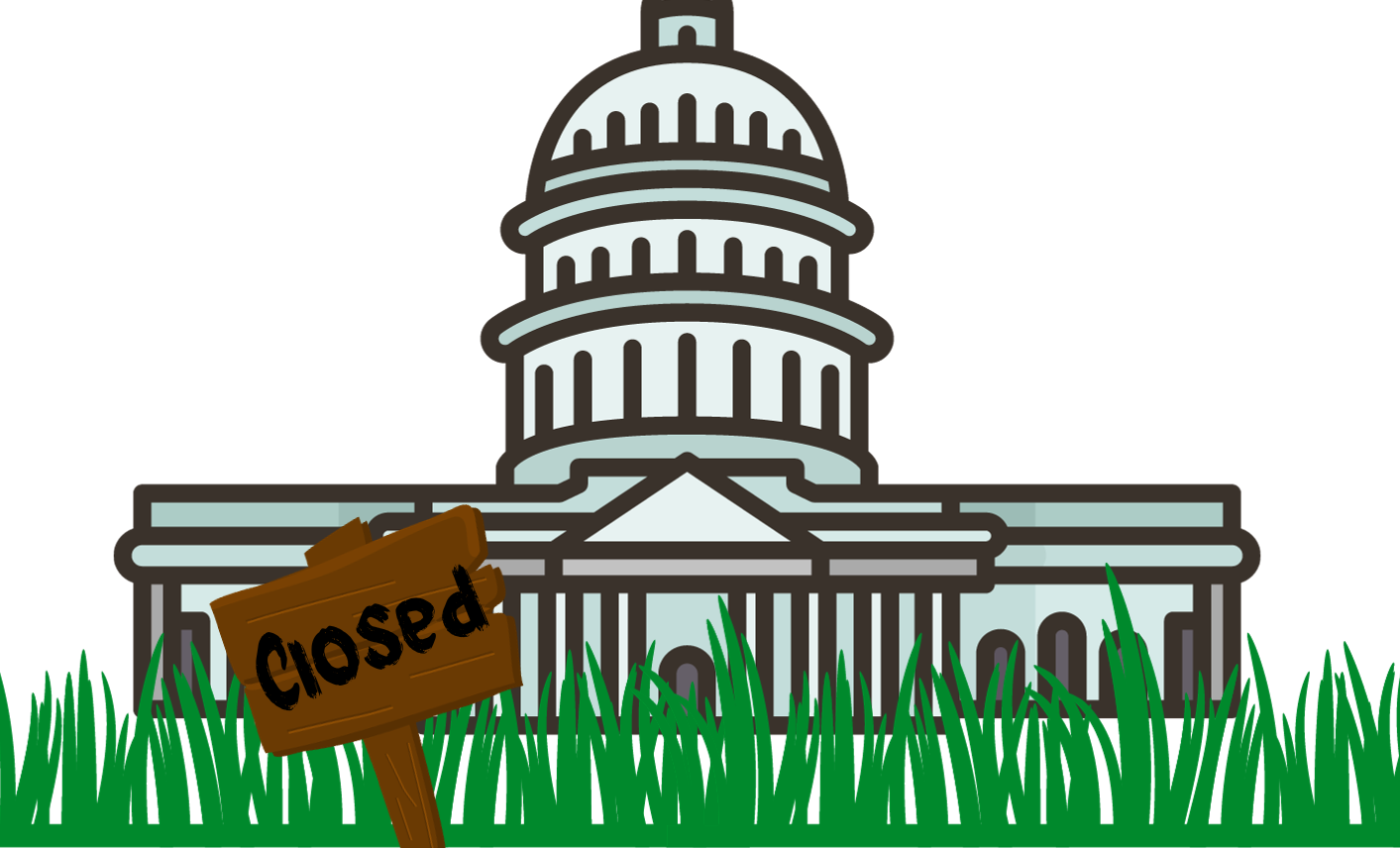Graphic by Ryann Bahnline.
MAIRIN MCCARTHY | STAFF REPORTER | mkmccarthy@butler.edu
With the passing of a stopgap spending bill to extend funding for federal agencies in the United States, Congress narrowly evaded a government shutdown. The bill was passed Sept. 30, hours before the Oct. 1 deadline, extending the federal budget until Nov. 17, when it will be reanalyzed. The threat of the October shutdown was prompted by budget disagreements between White House, Senate and House of Representatives officials, which forced President Joe Biden to sign the bill, which had been passed in the House and the Senate, into law.
A government shutdown is initiated when Congress or the president disagrees with a spending bill that funds operation of the federal government. This budget process was established in 1976. Since then, 10 government shutdowns have occurred.
The last time the U.S. government shutdown was from Dec. 22, 2018 to Jan. 25, 2019. This five-week partial shutdown cost about $18 billion in federal spending and impacted millions of federal workers nationwide.
If the government were to shut down, then non-essential federal workers are told not to show up for their workday until the shutdown ends and their pay resumes. Benefits such as Medicare and Social Security are still intact, but services like food-safety inspections, small business loans, passport applications and more are not available during the shutdown period. Even though these programs have funds stored away for instances like a government shutdown, the money would still deplete in a matter of days due to the immense need for social services.
Dr. Rhea Myerscough, an assistant professor of political science, warned of how a government shutdown would affect the students on campus.
“The way [a government shutdown] impacts [Butler students] is that eventually taxpayers will have to pay federal workers,” Myerscough said. “But since many of them can’t go to work, we’re essentially paying for nothing and costing taxpayers money.”
Trouble in Congress continues beyond there. Due to issues with the budget and disagreement among House Republicans, Kevin McCarthy has been removed as speaker of the house. This is the first time in U.S. history that a speaker of the house has been voted out of office.
“Parties have gotten more polarized,” Myerscough said. “With that, there’s more incentive to avoid compromise for as long as possible because the terms of what each party wants has gotten bigger.”
Congress will hold a speaker election on Oct. 11 and must reach an agreement on 12 federal spending bills by the Nov. 17 date. These appropriation bills have only been passed by Congress on time four times.
Senior political science major Chloe Hartford highlighted how a shutdown can impact the U.S. in the long term.
“[The shutdown] seemed like a last-minute push by Republican senators,” Hartford said. “A shutdown means federal government workers are not getting paid, which could lead to recession.”
The federal funds allocated by the 12 bills go towards pre-existing bills and programs that support foreign operations, the environment, military construction and nine other appropriations to be approved or denied by Congress.
Lauren Stubbs, a junior history-political science major, hopes for the best outcome out of this political frenzy.
“Politics right now is just a mess,” Stubbs said. “I really hope they solve this issue because if the government shuts down, it means federal employees and federal programs don’t get funded anymore.”



